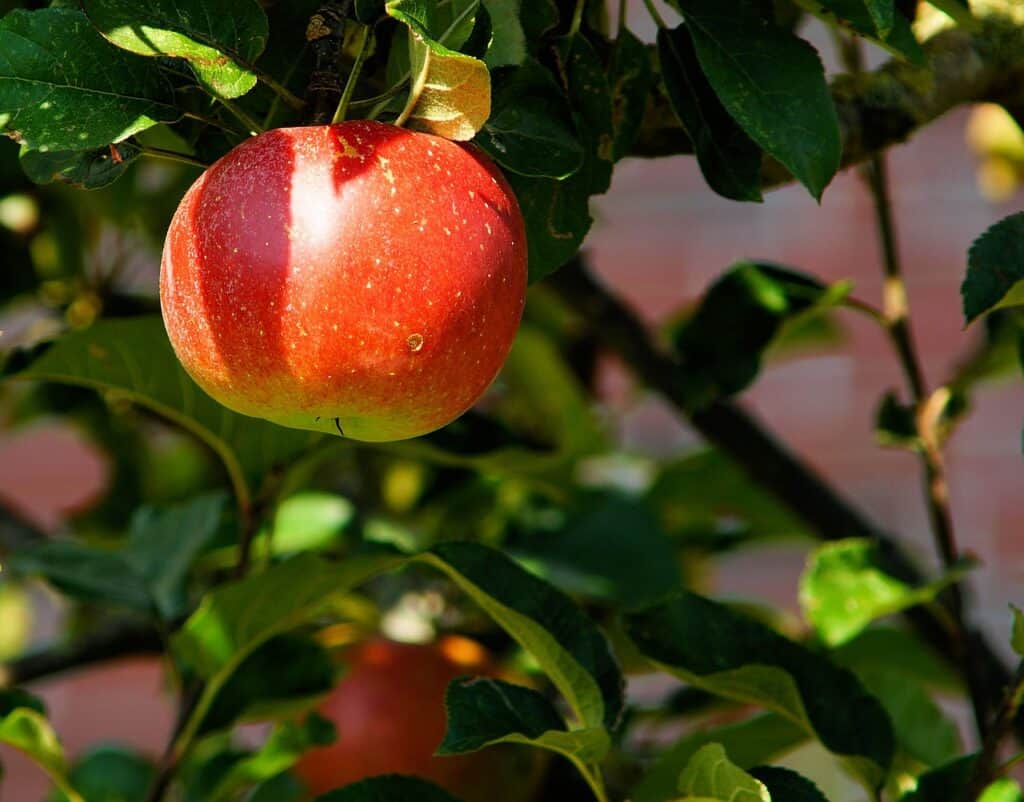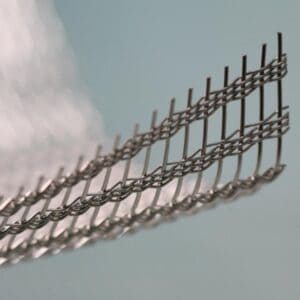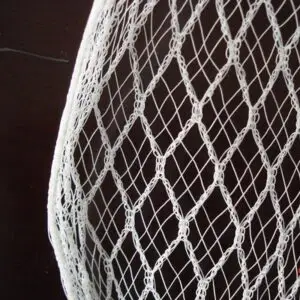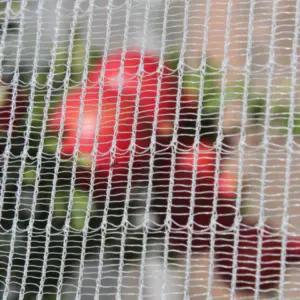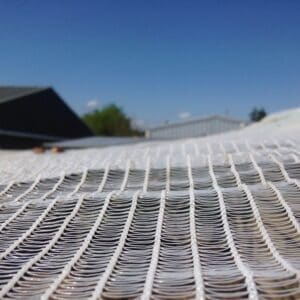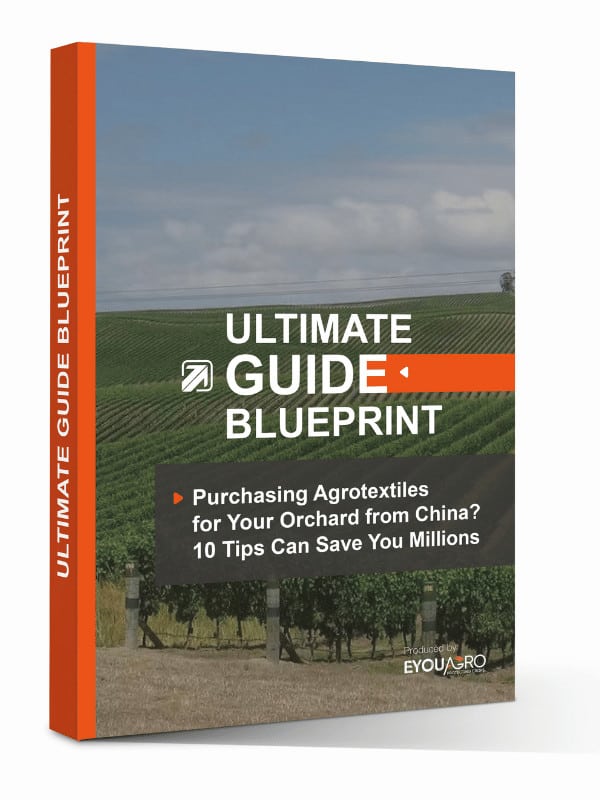If your soil is low quality and does not drain properly, growing your fruit tree in your yard may seem difficult. If this is the case, a raised nursery bed may be the answer you’ve been looking for.
Fruit trees do exceptionally well in raised nursery beds because you have better control over the quality of your soil, weed infestations, drainage, soil compaction, and other factors.
In this blog post, we will be looking at some common fruits plants that are first raised in nursery beds. But before that, let’s look at the types of nursery beds and the importance of raising your plants in nursery beds.
Benefits of Raising Your Fruit Plants on a Nursery Bed
You can control the quality of the soil
This is because, to fill the bed, you’ll most likely need to buy dirt to supplement your existing soil. This allows you to buy soil that drains effectively, has the right pH level, is disease-free and bacteria-free, and is in excellent condition.
You, Will, Prevent Your Plants from External Damages
Gardeners can easily harm their trees unintentionally while mowing their lawns, remodeling their homes, or performing other mechanical tasks.
You’ll be Able to Control Weed
Weeds have difficulty infiltrating a raised bed, mainly supported and sitting directly on the ground.
Now that we’ve seen the benefits of nursery beds, let us look at fruit plants you can raise in a nursery bed.
Common Fruit Plants Raised in a Nursery Bed
1. Apple
With the proper preparation, apple seeds are simple to raise on a nursery bed.
After covering your seeds with a paper towel and refrigerating them for a period of 70 to 80 days, your seeds are ready to be raised on a nursery bed. In the fridge, keep checking the towel to make sure it’s damp.
Prepare your nursery bed and use high-quality potting soil. Apple seeds thrive in soil with a pH of 7.0 or higher. Fill the nursery bed with soil and make a hole one to two times the size of the sprouting seed in the soil. Don’t use fertilizers, but you can apply leaf compost or mulch if you want to give your seedlings a boost.
Place the seeds in the holes you already made and cover them with soil, gently patting them down. Water the seed right away to ensure that the soil settles around it and remains moist. After a few weeks, the seeds will start throwing some tiny leaves.
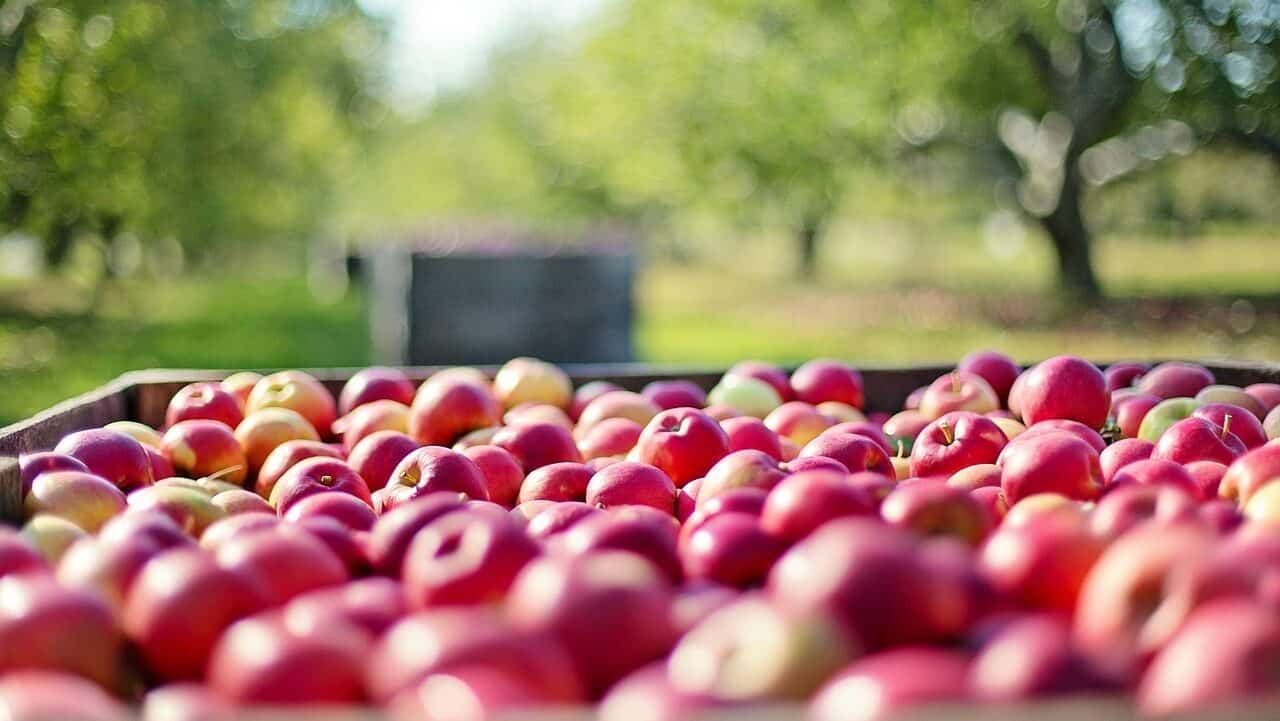
Keep them in a nursery bed until they appear healthy and there is no danger of frost. If your seedling appears to be outgrowing its divots, transplant it to a larger space and continue to water it regularly.
2. Grapes
Plant grapes to receive full sun and sufficient air circulation for optimal results. American grapes thrive in soils with a pH of 5.5 or less, and they do not require further fertilizing if the soil is already enough for the plant’s growth requirements. You can perform soil testing at home using at-home testing kits.
Water your young grapes 1 inch of water each week to stimulate growth and vitality, but mature, profound vines can withstand drought. Directly saturate the roots with water. Grape leaves are susceptible to fungal illnesses due to their broad surfaces. Avoid getting water on them. Plant grapevines 6 to 10 feet apart to avoid overcrowding and ensure adequate air circulation.
3. Strawberries
Fill the nursery bed containers with loose, loamy garden soil to hold moisture while allowing excess water to drain quickly. Use a container that has a drainage hole. Make a small pile of soil and spread the roots out over it, and thoroughly moisten the soil.
After watering, add garden soil as needed, but avoid covering the crown with soil. Water your strawberries once or twice a week or anytime the soil gets dry approximately 1 inch below the ground.
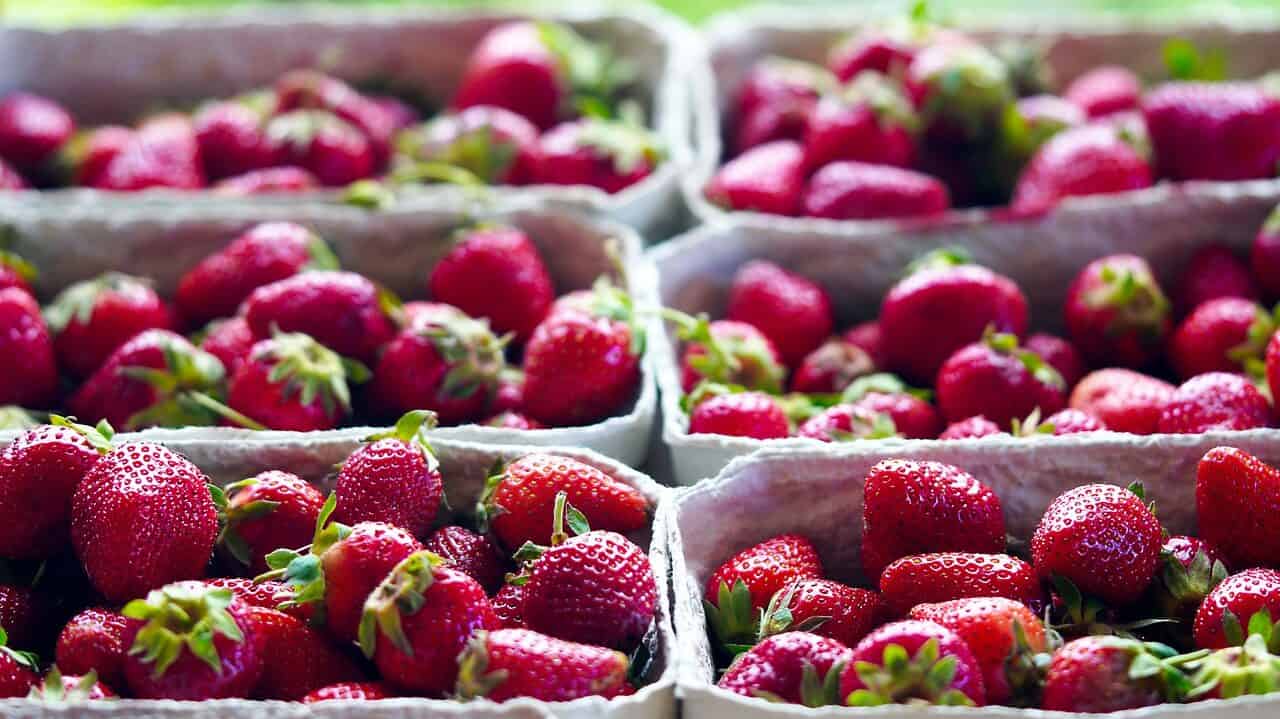
To provide the best environment for fruits to form, keep the soil slightly wet. The soil in nursery bed containers dries out faster than the ground soil. So, during hot weather, your plant may demand water twice daily.
4. Blackberries
Like raspberries, blackberries are a simple berry to grow. Prepare for a plentiful harvest when this natural fruit ripens, plucking every couple of days! Here’s how to cultivate blackberries in your nursery bed.
If you are growing blackberries on nursery beds, spacing is the key. A space of three to four apart is ideal. They require extra water the first season after seeding, and you should keep the soil moist below the surface at all times, with additional water applied during transplant.
During this season, remove weeds regularly, and since the roots are shallow, don’t go deeper than one inch. Also, mulching will help you control the weeds during the establishment phase. For pesticide advice, contact a local department.
5. Kiwi
Another fruit you can raise in a nursery bed is Kiwi fruit.
Cut off a vine’s wood chips branch with roughly three leaf nodes. Trim the leaves, soak the cutting’s underside in a rooting hormone, and plant it in wet and well-drained soil. The cutting will produce new roots and branches, and once you have enough leaves, you can transfer them where you’ve prepared for planting.
Find a well-drained site with full sunlight to put the mini-kiwi in the soil, as kiwis will not grow in a shaded area.
6. Persimmon
You can raise your persimmon seedlings in a nursery bed and still get incredible results—plant three persimmon plants per sq foot of soil.
Plant your persimmon tree in a raised nursery bed if your soil has poor drainage. Make planting holes and insert a tree stake in each of them. Space your persimmon tree about 16 to 20 inches apart.
7. Plum
Keeping the graft union 2 inches above the soil level when planting grafted plum trees in a nursery bed is critical. This is particularly important for dwarf kinds because roots may sprout from above the graft.
Make a hole a few centimeters wider and deeper than the root system’s spread.
Put the tree on top of the soil and distribute the roots from the stem without twisting them unduly.
Conclusion
Many common fruit plants are raised in a nursery bed. Apples, grapes, blackberries, Kiwi are some of them. If you raise the fruit seedlings You get safe and healthy seedlings when you plant in your farm, orchard, or field.
Eyouagro is the customer’s first option for distinctive fruit seedling protection nets in the nursery. We offer high-quality polymer netting for managing macroclimates, resulting in healthier and stronger fruits.
Contact us at info@eyouagro.com for additional information about netting goods for your nursery, horticulture solutions, or product recommendations.

